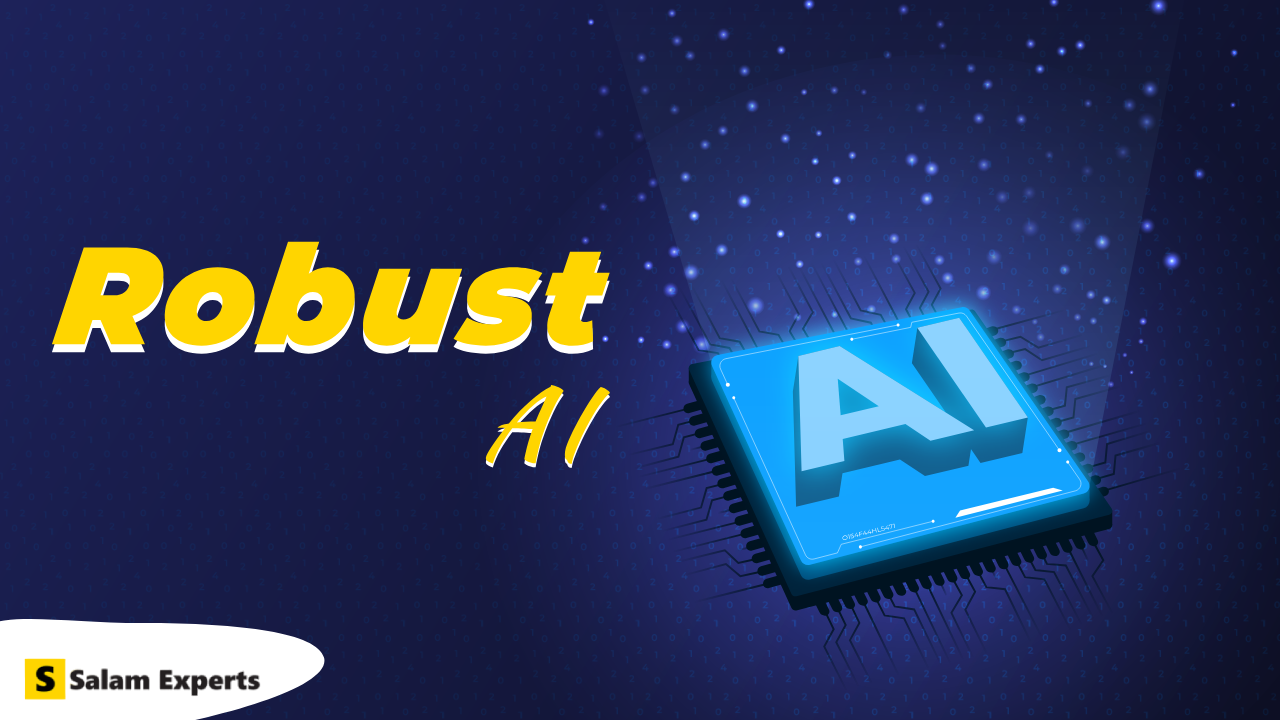Robust AI: Resilient Artificial Intelligence Systems

Artificial Intelligence (AI) has become a cornerstone of modern technological advancements. Among the various types of AI, Robust AI stands out as a promising field, taking AI systems to unprecedented heights of reliability and resilience. In this article, we will be exploring what it is, why it is important, and its potential usage across various domains.
Key takeaways:
- Robust AI ensures AI functions effectively in unexpected situations, crucial for healthcare, finance, and autonomous vehicles.
- These AI systems can adjust to changing environments and recover from disruptions, improving performance.
- The AI prioritizes clear decision-making processes, building trust and aiding regulations.
- Developing and maintaining these systems can be complex and expensive, with ethical considerations to address.
What is Robust AI?
Often referred to as resilient or stable AI, It encapsulates artificial intelligence systems designed to function effectively under unexpected or ever-changing environments. These systems are built to maintain their level of performance under a variety of conditions, exhibiting qualities of resilience, reliability, and robustness.
The fundamental factor distinguishing Robust AI from traditional AI systems is its ability to adapt to changing circumstances and recover from unexpected disruptions swiftly. This adaptability is crucial for the proper operation of the system as intended by its developers.
Usage
Robust AI extends its applications across a vast array of industries. It has proven to be most critical in sectors where unexpected or changing conditions are frequently encountered and mission-critical implementations are involved.
- Autonomous Vehicles:
It plays a vital role in autonomous vehicles, enabling them to adapt to changing traffic conditions, navigate through unfamiliar routes, and make split-second decisions to avoid accidents. - Healthcare:
In healthcare, It is used to develop systems that can adapt to the unique medical history and conditions of individual patients, improving the accuracy of diagnosis and treatment plans. - Finance:
The finance sector leverages it for risk assessment and predictive
analysis, enabling financial institutions to make informed decisions and maintain financial stability even under volatile market conditions. - Policing and Security:
The AI also aids in crime prediction, surveillance, and threat detection, ensuring public safety and security. - Manufacturing Control Systems:
It is extensively used in manufacturing control systems to ensure optimal performance under varying production conditions and requirements.
Why is Robust AI Important?
Its importance stems from its ability to ensure the reliability and functionality of AI systems under unpredictable or changing conditions. This is particularly crucial for critical applications where the failure of an AI system could have severe consequences, such as in healthcare, transportation, or finance.
It ensures that the decision-making processes are understandable, thereby instilling confidence and trust in AI. From a policy and regulation perspective, this also provides a clearer view of the boundaries of safe operation, allowing companies to comprehend how a system deals with critical failure and how to mitigate potential issues.
If you are interested in learning about more AI tools, you can visit
Key Features
Robust AI systems exhibit several distinguishing features:
- Adaptability:
Robust systems are capable of adapting to changing environments and handling unexpected inputs, ensuring they continue to function effectively under varying conditions. - Resilience:
These systems are built to recover quickly from significant variations or disruptions, ensuring continuous performance. - Transparency:
The systems are designed to be transparent and explainable, making it clear how they make decisions and why. - Resistance to Manipulation:
The systems are resistant to external manipulation, ensuring that their performance is not compromised by adversarial attacks.
Subscription Model
Robust AI services are often provided on a subscription basis, offering customers access to advanced AI tools and features for a recurring fee. This model ensures continuous access to the latest updates and improvements, enhancing the robustness and resilience of AI systems over time.
Limitations
Despite its numerous advantages, Robust does present certain limitations and challenges:
- Complex Development Process: Developing a robust AI system requires addressing numerous technical challenges, including adapting AI systems to changing environments and handling unexpected inputs.
- Lack of Standardization: There is currently no standardized approach to developing the systems, making it difficult for developers to choose the most appropriate methods for their specific use cases.
- Cost: The development and maintenance of these systems can be costly, limiting their adoption, especially among smaller organizations.
- Ethical Concerns: Like all AI systems, this AI system also raises ethical concerns, especially related to data privacy and the potential misuse of AI.
Impressed with the advancements of robust AI? You can check a drastically advanced AI tool known as
Reviews
Robust AI has received positive reviews for its ability to handle variability and uncertainty in real-world environments. Many users appreciate the system’s adaptability and resilience, highlighting its potential to improve decision-making processes across various sectors.
However, some users have expressed concerns about the complexity of the systems and the need for more standardized development practices. The cost of implementing and maintaining these systems is also a common concern among smaller organizations.
Conclusion
Robust AI, with its adaptability, resilience, and transparency, holds significant promise for a wide range of industries. Despite the challenges and limitations, its potential to improve decision-making processes and enhance the reliability of AI systems is undeniable. As research in this field progresses, we can expect to see more robust, reliable, and resilient AI systems shortly.
Disclaimer
This article is for informational purposes only and does not constitute professional advice. While every effort has been made to ensure the accuracy of the information, the evolving nature of AI technologies means that readers should always conduct their research and consult with a professional before making significant decisions.
Author
-

We are a digital marketing agency with over 17 years of experience and a proven track record of helping businesses succeed. Our expertise spans businesses of all sizes, enabling them to grow their online presence and connect with new customers effectively. In addition to offering services like consulting, SEO, social media marketing, web design, and web development, we pride ourselves on conducting thorough research on top companies and various industries. We compile this research into actionable insights and share it with our readers, providing valuable information in one convenient place rather than requiring them to visit multiple websites. As a team of passionate and experienced digital marketers, we are committed to helping businesses thrive and empowering our readers with knowledge and strategies for success.
View all posts




